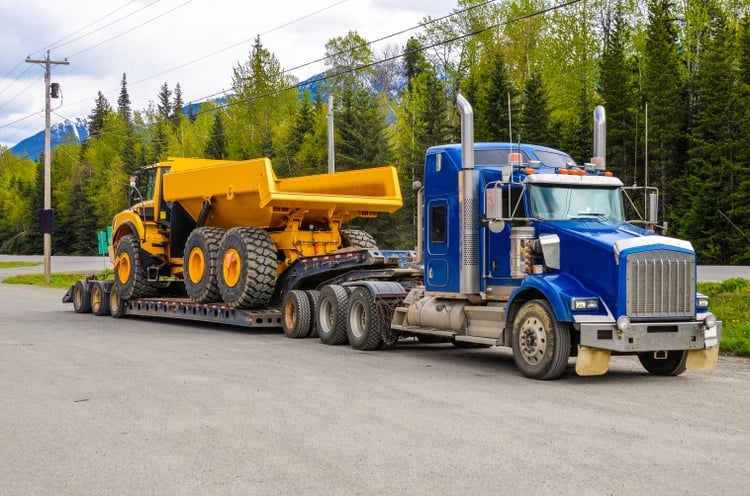
Fuel taxes comprise at least 20% of the price per gallon. While federal excise taxes are just above $0.18 and $0.24 per gallon for gas and diesel, respectively, diesel fuel taxes by state and gas taxes by state vary. The collection of these taxes is intended for the repair and maintenance of our roads and highways which is critical for commercial trucking fleets. But what about fleets and businesses that have off road equipment? These companies have two options. They can use a fuel card to purchase off road diesel which doesn't include fuel excise taxes or apply for a fuel tax refund.
Off road diesel - exempt at the time of purchase
There are a couple of different ways companies that operate off road equipment can avoid excise taxes intended for road use. The easiest way is to purchase off road diesel, also known as dyed diesel or red dyed diesel. This fuel product is exempt of federal and state excise taxes which offers significant savings to companies.
Unlike “clear diesel” (which is clear of dye), off road diesel is not intended for road vehicles. The fuel product is designated specifically for equipment often used in farming activities or construction. Dyed diesel can be used with heavy machinery, generators or refrigerated trailers, among other purposes. There should be no loss in engine performance using either dyed or clear diesel. But before you try to circumvent taxes by using it in road vehicles, keep in mind that doing so is illegal. Law enforcement can check your vehicle’s fuel tank for traces of the dye, and laws pertaining to misuse of the fuel product include hefty fines or even jail time depending on the number of infractions.
The other consideration with off road diesel is that it isn’t widely available at retail fuel locations. Generally, it’s unavailable to the public as it is solely intended for commercial use. However, fleet cards, such as CFN fuel card, can provide customers with access to off road diesel locations.
Clear diesel - file for fuel tax refunds
Given the risk of inadvertently putting dyed diesel into a road vehicle’s tank, you might decide to file for refunds instead. Or in cases where a shared fuel tank powers both vehicle and power take-off unit (PTO), submitting refunds is really the only option. To obtain refunds, you will need to report the fuel used off road to the appropriate government agency at both the federal and state level.
Each state has its own guidelines for what qualifies for fuel tax refunds, and these could differ from federal guidelines. As a result, it's important to carefully review any restrictions before filing and make sure you have the proper documentation to support a refund. Having a system in place to easily document fuel usage is the ideal way to maximize the refund owed to your company.
Rather than trying to manually track fuel purchases, your fleet fuel card company should provide you with an off road diesel refund report. Automated fuel card reports will make refund filing more accurate and more efficient. You might choose to issue separate cards for road vehicles and for equipment that’s off road. Alternatively, you can require drivers to input the equipment number at the time of fueling. Either way, your quarterly fuel reports would identify which vehicle or equipment was fueled so that refundable and non-refundable gallons are separated, making the fuel tax refund process much easier for your administrative team.




